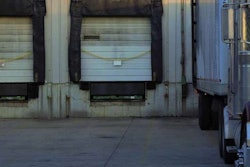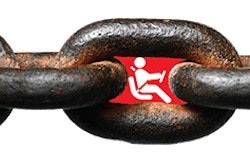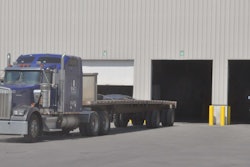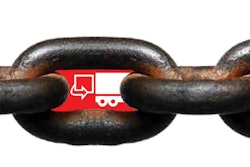The anchor story in this feature about how blockchain technology could impact trucking as an owner-operator:

Blockchains have been called “trustless,” which isn’t intended to be as negative as it sounds. Rather, the term refers to the trust created by the structure of information contained in a blockchain, which could virtually eliminate the necessity of the personal touch that traditionally has been required to build trust in business relationships, says Blockchain alliance head Chris Burruss.
“If you and I enter into a contract, the reason we do that is because we don’t trust each other – evidence of that is that we have attorneys to represent us,” Burruss says. “In blockchain, I don’t have to trust you and know who you are.”
Burruss sees “smart contracts,” in effect “contracts that are written into code,” as the future. They could be between a shipper and a carrier, or a carrier and a 3PL or tech-enabled broker, or a broker and a shipper.
A smart contract sits on a system that “doesn’t have to interpret the validities of the contract – it self-executes,” Burruss says. “A, I was tendered a load. B, then I delivered the load. C, then payment is tendered instantaneously, rather than having go through a factoring company or the receivables department.”

Tech-enabled brokers are doing some form of this today with traditional online infrastructures, but Burruss and others believe blockchain enhances security and opens up more custom contract possibilities with individual shippers for specific carriers. Future freight systems could drive out more inefficiencies that result from having multiple third parties involved, building greater income potential for carriers and savings for shippers.
Uncertain future for factors and brokers
There’s fear among some freight-transaction third parties, from brokers to factoring companies and others, that blockchain will eliminate the need for them, Burruss says. “I don’t think that’s necessarily true. What I think is true is that individuals resistant to technology in general will find themselves out of the equation.”
Blockchain’s enabling of more speedy payments may drive out the need for today’s core function of factoring companies. Burruss says their role could shift toward handling escrowing functions for shippers and carriers and their drivers, or perhaps something else.
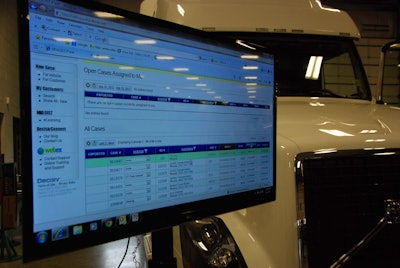 One potential use for blockchain is to track maintenance and other data that form a truck’s history.
One potential use for blockchain is to track maintenance and other data that form a truck’s history.Jerry Wallace, chief technology officer for Apex Capital, one of the factoring companies that has joined BiTA, says the sky’s the limit when it comes to blockchain uses. “Anything from maintenance records” following a truck’s signature identifiers throughout its life, readily accessible to future potential buyers, to aggregation of all the information associated with a driver’s history to a piece of freight’s movement history down to “the consumer level – how the goods might be stocked on the shelf.”
Wallace says he wouldn’t mind seeing further third-party disruption in the broker’s space. The “more successful small carriers are, the better things are for us. … The 20 percent margin for the broker – hopefully those margins will come over to the carrier.”

